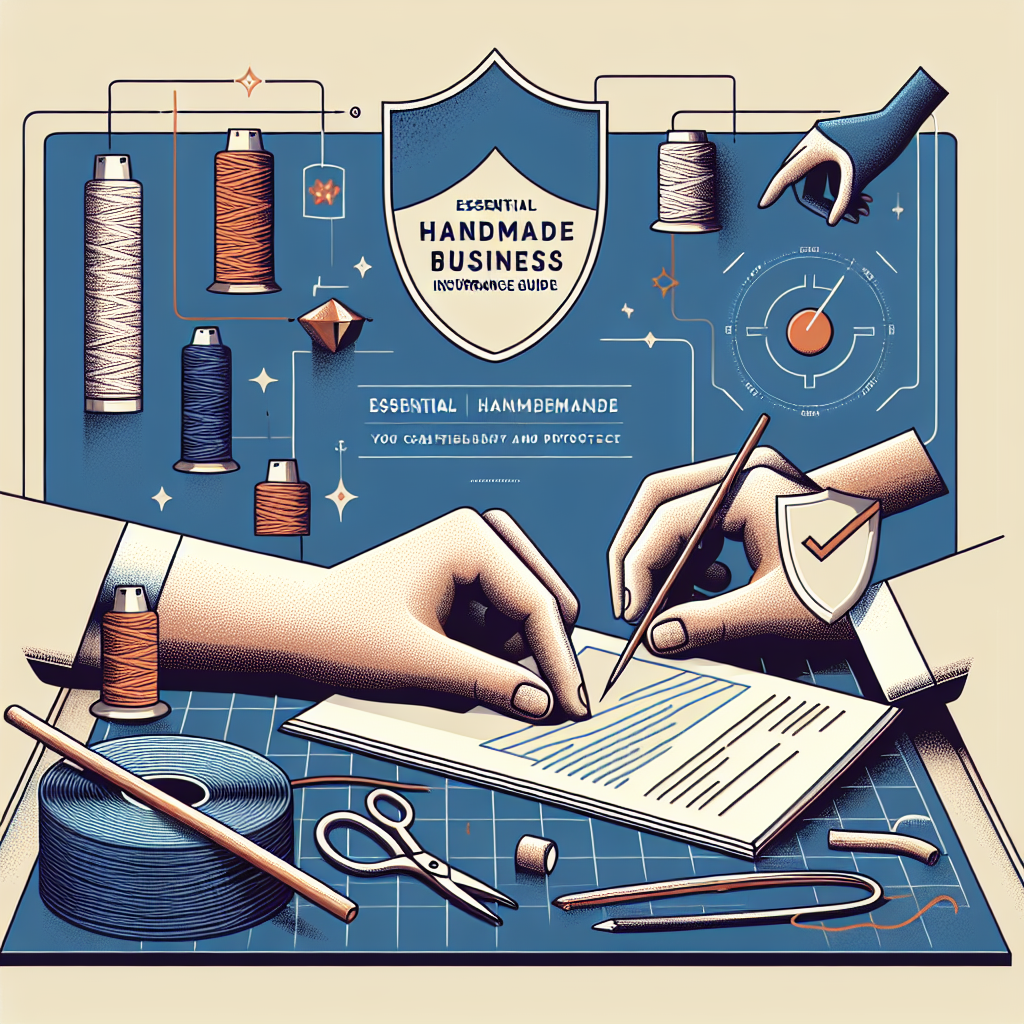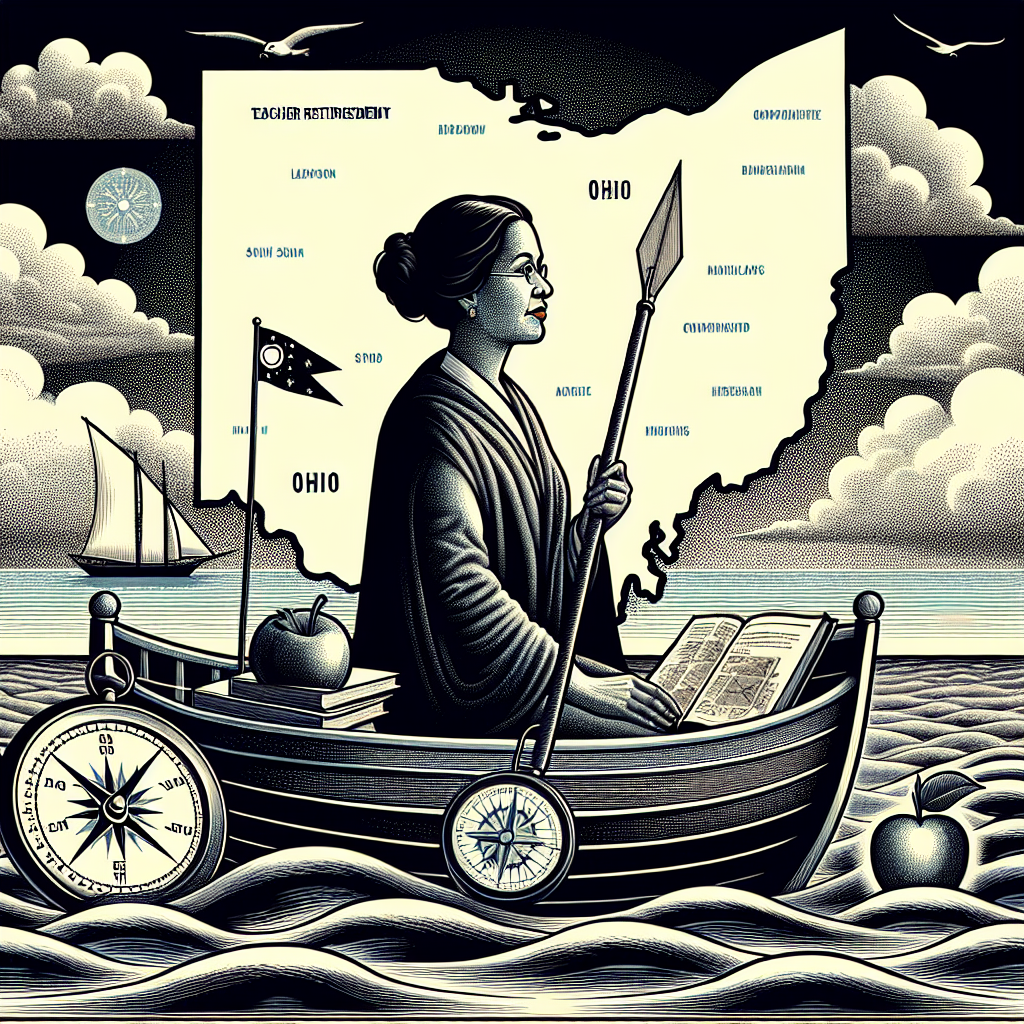Filed under Business Insurance on
Essential Handmade Business Insurance Guide

Running a handmade business can be incredibly rewarding, allowing you to turn your creative passion into a livelihood. However, like any business, protecting it with the right insurance policy is vital. The world of insurance can be overwhelming for many entrepreneurs, particularly those venturing into handmade markets. This Essential Handmade Business Insurance Guide aims to demystify the process, ensuring you can make informed decisions to safeguard your enterprise. In this comprehensive guide, we cover the why, what, and how of handmade business insurance.
Why Handmade Business Insurance is Crucial
Many handmade business owners face the common misconception that their enterprises don't need insurance due to their small size. However, this couldn't be further from the truth. Whether you sell online, at craft fairs, or through retail partnerships, your business is exposed to several risks. Insurance provides a safety net, ensuring you can continue your operations even when unexpected events occur.
Mitigating Risks in Handmade Businesses
Handmade businesses, like any other, face risks such as property damage, liability claims, and even cyber threats. For example, if a customer is injured by one of your products or if a fire damages your inventory, having the appropriate insurance coverage can prevent financial ruin. Handmade business insurance also helps you comply with legal requirements, providing peace of mind and credibility to your brand.
Understanding Policy Requirements
Not all insurance policies are created equal. An essential aspect of securing suitable handmade business insurance is understanding the specific coverage you need. This is influenced by factors such as your production scale, sales venues, and the nature of your products. Research and experience from industry peers can be invaluable, providing insights into common scenarios that necessitate insurance claims.
Types of Coverage for Handmade Businesses
Choosing the right insurance for your handmade business involves evaluating different types of coverage. Here are the most relevant options to consider:
General Liability Insurance
This insurance is the backbone of most business protection plans. General liability insurance covers third-party claims related to bodily injury, property damage, and personal and advertising injury. If you participate in craft fairs or sell in physical stores, this coverage is particularly essential to protect against incidents linked to your products or stall setup.
Product Liability Insurance
Product liability insurance is crucial for handmade business owners, given the often-custom nature of items. If a product you sell causes harm or injury, this coverage can help cover legal fees and medical costs. With increasing regulations and customer expectations regarding product safety, this insurance acts as a safeguard against costly lawsuits.
Property Insurance
Even if you run your business from home, property insurance can protect your creative space. This coverage is vital if you have equipment, materials, or finished goods. It insures against losses caused by events like fire, theft, or natural disasters. Consider whether your existing homeowners' insurance adequately covers business activities, often requiring a separate policy.
Professional Liability Insurance
Sometimes referred to as errors and omissions insurance, professional liability insurance is critical if your handmade business offers workshops or services in addition to products. It covers you against claims of inadequate work or negligent actions, ensuring that a dissatisfied client doesn't derail your entire operation.
Cyber Liability Insurance
With the growth of e-commerce, cyber threats are becoming more prevalent. Cyber liability insurance protects businesses against data breaches and cyberattacks, which can lead to significant financial losses and damage to reputation. This coverage is paramount if your business manages customer data or conducts online transactions.
Business Interruption Insurance
For many handmade businesses, the loss of production time equals financial loss. Business interruption insurance compensates for lost income if your operations are halted due to covered perils like fire or flood. This ensures you can maintain cash flow and cover expenses while your business recovers.
How to Choose the Right Insurance for Your Handmade Business
Choosing insurance for your handmade business requires a careful assessment of your needs and risks. Here are some key steps to guide the decision-making process:
Assess Your Specific Needs
Consider the nature of your business: Do you frequently sell at events, or is your sales model primarily online? Do you use specialized equipment or materials that are costly to replace? Answering these questions helps identify the types of coverage most relevant to your circumstances. Moreover, consultation with an insurance broker familiar with the handmade industry can offer personalized advice.
Budget Considerations
While it may be tempting to opt for minimal coverage to save costs, underinsuring can lead to greater expenses in the long run. Balance is key; your policy should fit your budget while adequately protecting your business. Request quotes from multiple insurers and compare policies not just on price but also on coverage specifics and limits.
Reading the Fine Print
Understanding policy terms is crucial to avoid unpleasant surprises. Pay attention to coverage limits, exclusions, and deductibles. Clarify concerns with your insurance provider so that you know exactly what is – and isn't – covered. It's also wise to review your policies regularly and update them as your business evolves.
Current Trends in Handmade Business Insurance
The insurance landscape for handmade businesses is continually evolving, driven by market demands and technological advancements. Awareness of current trends helps ensure you're ahead of the curve.
Increased Demand for Comprehensive Online Coverage
As the handmade market expands online, comprehensive digital coverage becomes increasingly important. Insurers are tailoring policies to address e-commerce concerns, from protecting intellectual property to covering digital infrastructure against cyber risks.
Sustainability in Insurance Offerings
With growing consumer and regulatory focus on sustainable practices, insurers are providing incentives for businesses that adopt eco-friendly measures. This could include reduced premiums or specialized coverage options for those using sustainable materials or processes in their handmade goods.
Expert Opinions and Resources
Learning from industry experts can provide valuable insights into handling insurance for your handmade business. Networking with other entrepreneurs through industry groups or forums can also be beneficial. Consider consulting the following resources:
- Small Business Administration (SBA) – Offers guides and tips on business insurance.
- Local Craft Business Associations – Provide networking opportunities and insurance advice.
- Insurance Brokers Specializing in Small Businesses – Can offer tailored solutions and advice.
Conclusion
Insuring your handmade business is no different from nurturing any other aspect of your livelihood. The right coverage offers more than protection; it provides empowerment, allowing you to focus on creativity and growth without constant worry over potential setbacks. By understanding and selecting the appropriate handmade business insurance, you're laying a foundation for sustainable success in the vibrant world of handcrafted goods. Equip yourself with the right knowledge and support, and watch your business thrive amidst the challenges of entrepreneurship.





